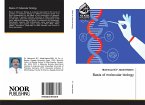Plant karyotypes display a great diversity in chromosome number and morphology, as well as DNA amount and composition. Chromosomal evolution, one of the driving forces underlaying diversification and speciation in plants, is usually complex and employs various mechanisms. Karyotype analysis is a basic method to study chromosomes, it is a basic work in cytogenetics research. It has been reported that sugar beet has diploid, triploid and tetraploid. However, the chromosomes of different types of plants, even different cultivars vary widely. Karyotypes can provide information about taxonomic relationships, genetic aberrations, and the evolutionary origins of species. The karyotype study is important to help identify karyotypic polymorphism and interspecific and intraspecific cytogenetic variation and evolution. It also helps us in understanding the relationship between chromosome number, amount of DNA, and complexity of the organisms.
Bitte wählen Sie Ihr Anliegen aus.
Rechnungen
Retourenschein anfordern
Bestellstatus
Storno








